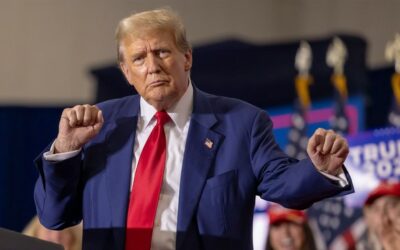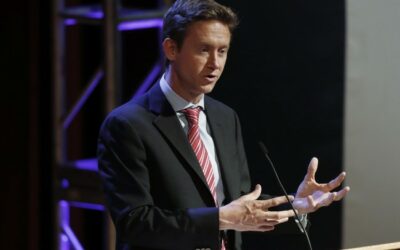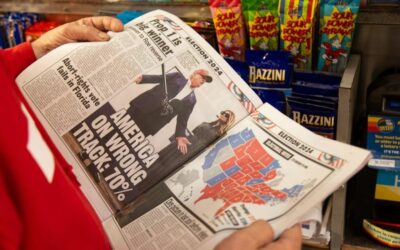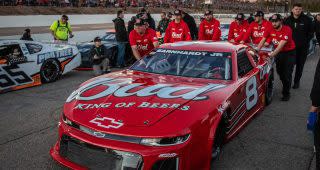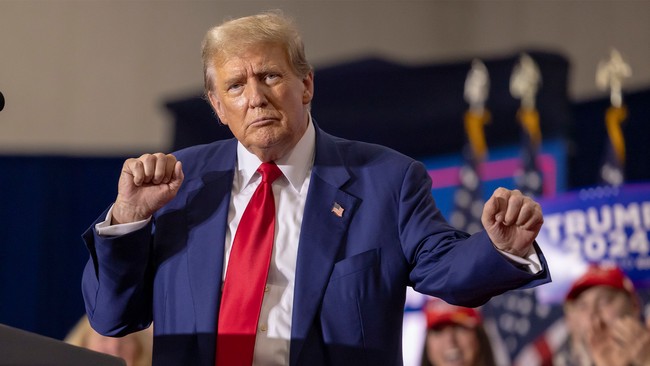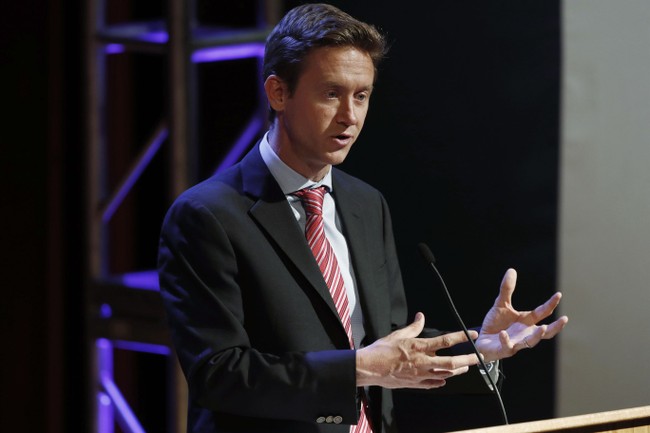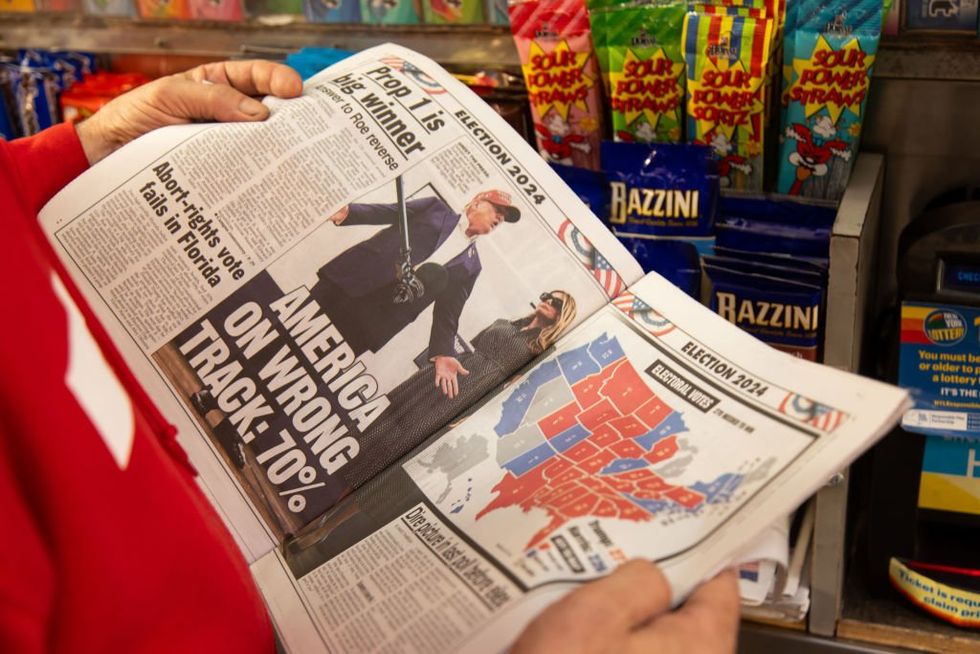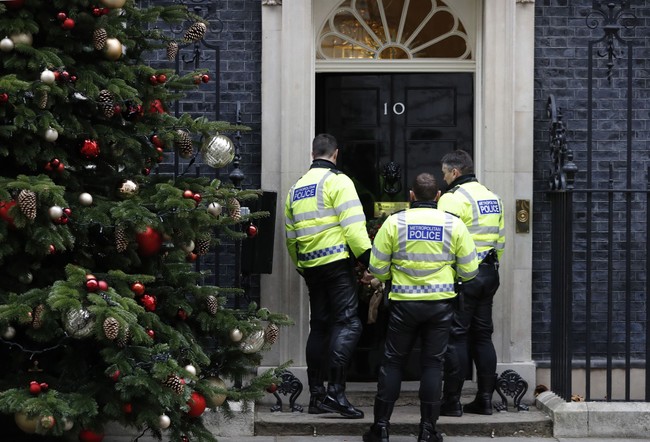What Trump’s VP pick has revealed about his Christian faith and baptism
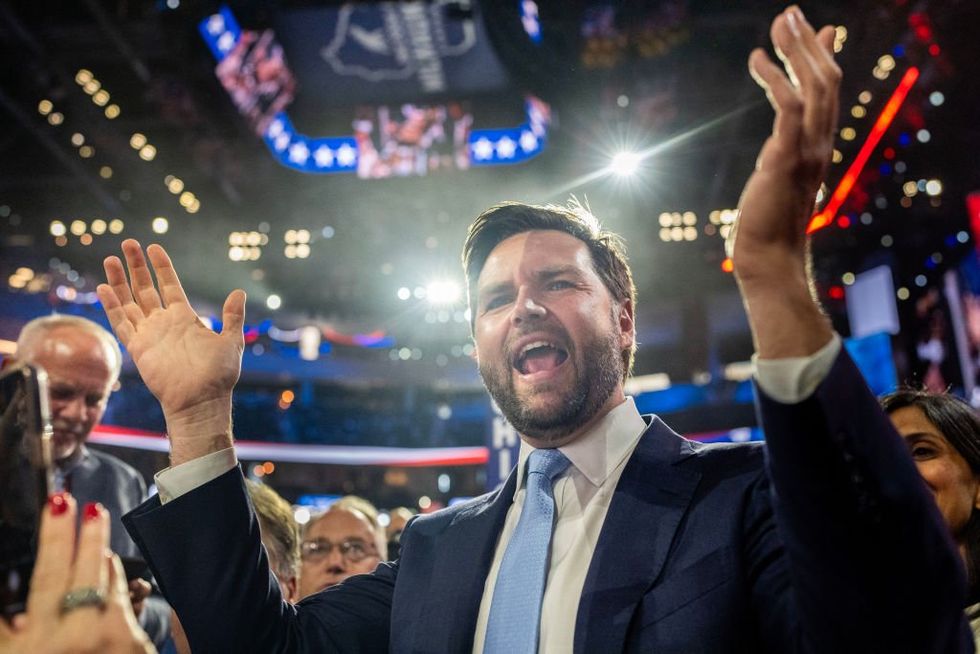
President Donald Trump’s running mate, Sen. JD Vance (R-Ohio), is now a practicing Catholic, but that was not always so.
Years before his baptism and reception into the Catholic Church, Vance
told Deseret News he grew up in a “pretty chaotic and hopeless world. Faith gave me the belief that there was somebody looking out for me, that there was a hopeful future on the other side of all the things I was going through.”
Vance’s Pentecostal father would occasionally take him to church.
“Going to church showed me a lot of really positive traits that I hadn’t seen before. I saw people of different races and classes worshiping together,” said Vance. “I saw that there were certain moral expectations from my peers of what I should do.”
The future Marine, venture capitalist, and senator indicated that unlike the other children on his block in Middletown, Ohio, the kids his age at the evangelical church he would occasionally attend expected him “not [to] do drugs or have premarital sex or drink alcohol.”
Although he found a supportive community through church that could serve as a check against the negative influences he encountered elsewhere, he felt that the particular kind of evangelical Christianity he practiced with his father encouraged “a cultural paranoia where you don’t trust and want to withdraw from a lot of parts of the world.”
Years later, when he entered Yale Law School, he indicated he “would have called [himself] an atheist.” He elsewhere
indicated that his reading Christopher Hitchens and Sam Harris corresponded with this turn away from faith.
By the time of his graduation, however, he began exploring his faith again.
“Back home, kids who grew up to be relatively successful tended to abandon their faith,” Vance told Deseret News. “All of my close friends growing up were all really religious but, with the exception of one of us, we all considered ourselves nonreligious by age 25.”
At Yale, I was exposed to faith groups in which that didn’t seem to be happening. Mormons and Catholics at Yale Law School, who were really smart and successful, were engaged with their faith. There was a moment when I was like, ‘Maybe it is possible to have Christian faith in an upwardly mobile world.’ You can be a member of your faith and still be a reasonably successful person. That’s not the world I grew up in, but maybe that’s true.
Vance hypothesized at the time that the practices of the Church of Jesus Christ of Latter-day Saints and Catholicism, contra the variety of Evangelicalism he was exposed to early on, did not apply the same type of “isolating pressures.”
Months prior to the 2016 election, he indicated that he was “thinking very seriously about converting to Catholicism.”
Rod Dreher, author of “The Benedict Option” and “Live Not By Lies,” attended Vance’s Catholic baptism in Cincinnati in 2019 and
interviewed him about his spiritual life for the American Conservative.
‘The hope of the Christian faith is not rooted in any short-term conquest of the material world.’
Dreher, who left Catholicism in 2006
ultimately for Eastern Orthodoxy, asked Vance, “Why Catholicism? Why now?”
Vance’s answer loosely resembled that provided by G.K. Chesterton in “Twelve Modern Apostles and Their Creeds“: “I became persuaded over time that Catholicism was true.”
“I was raised Christian, but never had a super-strong attachment to any denomination, and was never baptized. When I became more interested in faith, I started out with a clean slate, and looked at the church that appealed most to me intellectually,” Vance told Dreher.
Dreher, who covered sexual abuse in the church for the New York Post, asked if Vance found “the Catholic Church’s travails daunting.”
I do in the short term, but one of the things I love about Catholicism is that it’s
very old. I take a longer view. Are things more daunting than they were in the mid-19th century? In the Dark Ages? Is it as daunting as having a second pope at Avignon? I don’t think so. The hope of the Christian faith is not rooted in any short-term conquest of the material world, but in the fact that it is true, and over the long term, with various fits and starts, things will work out.
When pressed on how his faith might affect his politics, Vance indicated his views “are pretty aligned with
Catholic social teaching.”
This appears to have helped inform his
economic populism.
‘Yet I couldn’t shake the feeling that if I converted I would no longer be my grandmother’s grandson.’
Vance hit on a theme in the interview that has also been explored by other past speakers at the National Conservatism conference, including
First Things editor R.R. Reno and Notre Dame professor Patrick Deneen: that the Cold War fusion between libertarians and social conservatives, which long defined the Republican Party, did not particularly benefit the latter.
“Part of social conservatism’s challenge for viability in the 21st century is that it can’t just be about issues like abortion, but it has to have a broader vision of political economy, and the common good,” said Vance.
Vance indicated in a
2020 op-ed for the Lamp that he often wonders what his grandmother “would have thought about her grandson becoming a Catholic.”
She was a woman of deep, but completely de-institutionalized, faith. She loved Billy Graham and Donald Ison, a preacher from her home in southeastern Kentucky. But she loathed ‘organized religion.’ She often wondered aloud how the simple message of sin, redemption, and grace had given way to the televangelists on our early 1990s Ohio TV screen. ‘These people are all crooks and perverts,’ she told me. ‘All they want is money.’ But she watched them anyway, and they were the closest she usually came to regular church service, at least in Ohio.
Growing up with “Mamaw,” Vance indicated he was left with the distinct impression that “Catholics worshipped Mary,” “rejected the legitimacy of Scripture,” and would have the anti-Christ amongst their ranks.
Catholics didn’t, it turned out, worship Mary. Their acceptance of both scriptural and traditional authority slowly appeared to me as wisdom, as I watched too many of my friends struggle with what a given passage of Scripture could possibly mean. I even began to acquire a sense that Catholicism possessed a historical continuity with the Church Fathers — indeed, with Christ Himself — that the unchurched religion of my upbringing couldn’t match. Yet I couldn’t shake the feeling that if I converted I would no longer be my grandmother’s grandson.
He later determined, however, that “Catholicism [was] the closest expression of her kind of Christianity: obsessed with virtue, but cognizant of the fact that virtue is formed in the context of a broader community; sympathetic with the meek and poor of the world without treating them primarily as victims; protective of children and families and with the things necessary to ensure they thrive. And above all: a faith centered around a Christ who demands perfection of us even as He loves unconditionally and forgives easily.”
Sohrab Ahmari, who similarly interviewed Vance earlier this year, recently told the National Catholic Register that Vance, poised to potentially become the second-ever American Catholic vice president, is “very open and proud about his faith, but it’s not that gross over-piety that’s kind of fake.”
Like Blaze News? Bypass the censors, sign up for our newsletters, and get stories like this direct to your inbox. Sign up here!

